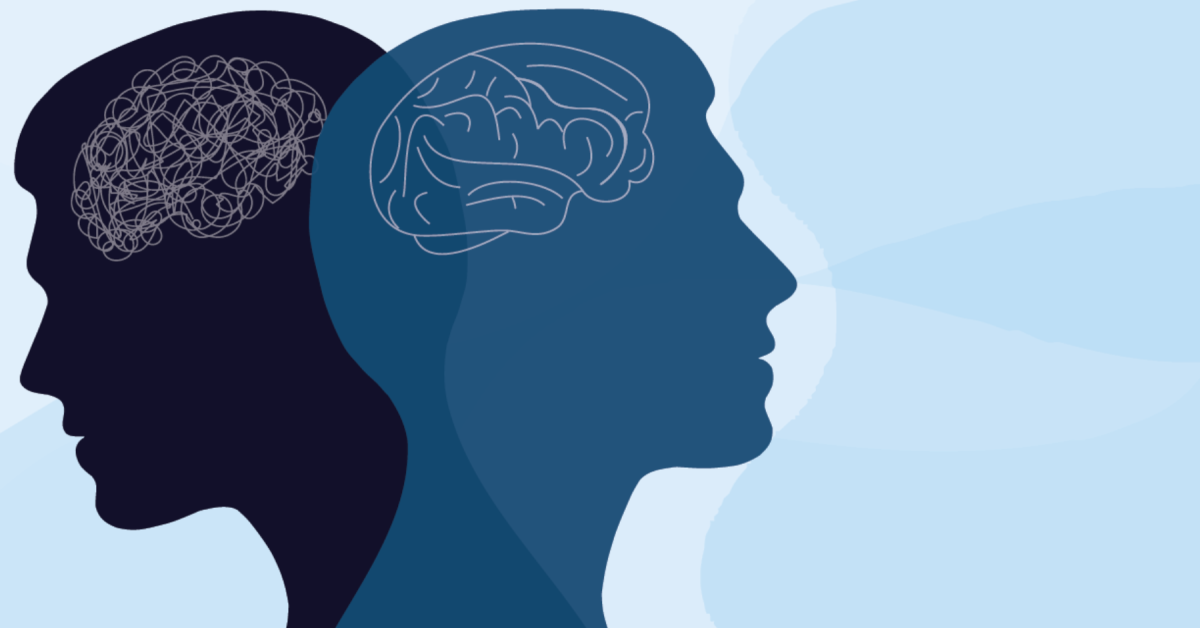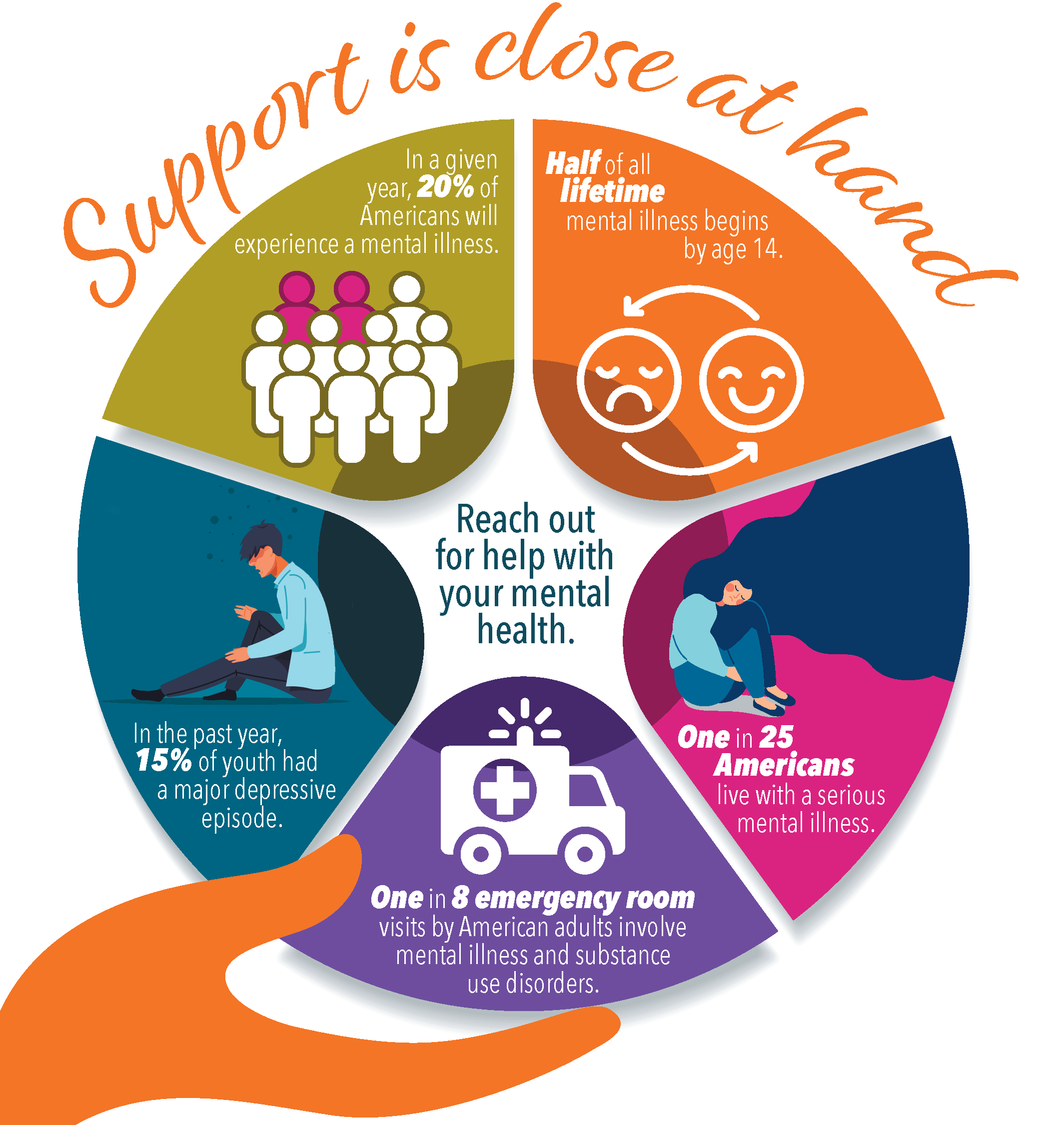Comprehensive Inpatient Mental Health And Wellness Solutions for Effective Treatment
Inpatient psychological wellness solutions represent an important element of the health care system, supplying a organized and extensive atmosphere for people experiencing severe emotional distress. These solutions use a multidisciplinary technique, incorporating different evidence-based therapies to resolve the intricate demands of patients. Nonetheless, the performance of such comprehensive care expands past instant stablizing; it additionally incorporates the change to outpatient support, a vital stage commonly forgot. Exploring the subtleties of this continuum reveals considerable effects for both specific healing and more comprehensive mental health and wellness outcomes. What elements genuinely affect this shift, and how can we boost its effectiveness?
Understanding Inpatient Mental Health Services
Inpatient mental wellness solutions give vital support for individuals experiencing extreme emotional distress that can not be handled successfully in an outpatient setting. These solutions are made to supply an extensive level of treatment in a structured atmosphere, usually within a hospital or specialized facility. People admitted to inpatient programs commonly show intense signs, such as suicidal ideation, serious depression, or psychosis, demanding round-the-clock monitoring and intervention.
The admission procedure generally involves a detailed analysis by psychological wellness experts, that examine the person's mental state, background, and instant needs. When confessed, people participate in a variety of therapeutic techniques customized to their certain needs, consisting of drug management, individual therapy, and team sessions. This holistic approach aims to maintain the patient's condition, advertise safety and security, and foster coping abilities.
Inpatient mental health and wellness services not just address prompt wellness worries however also work as a bridge to recurring treatment. By giving a controlled setting, these services facilitate the development of therapy plans that can be continued in outpatient setups, thus making sure a continuum of care and boosting lasting end results for people with complicated psychological wellness demands.
Key Elements of Effective Therapy
Reliable treatment in inpatient psychological health solutions makes up a number of essential components that promote healing and stabilization. An extensive assessment is necessary to identify the individual's details needs and challenges. This evaluation notifies the growth of a customized treatment plan, which works as a roadmap for treatment.
An additional essential component is the multidisciplinary group method. Partnership amongst psychoanalysts, psychologists, nurses, and social workers ensures that various viewpoints add to the patient's treatment, improving the effectiveness of therapy. Evidence-based therapeutic techniques, such as cognitive-behavioral treatment (CBT) and dialectical habits therapy (DBT), are also integral, providing structured strategies that attend to maladaptive idea patterns and behavioral concerns.

Finally, a focus on aftercare preparation is essential to ensure a smooth shift to outpatient solutions, minimizing the risk of regression and promoting long-lasting health. These cumulative parts develop a reliable therapy framework Homepage within inpatient psychological health solutions.
Advantages of Comprehensive Treatment

Extensive care in inpatient psychological health services provides countless advantages that dramatically improve patient outcomes. One of the main advantages is the alternative method to therapy, addressing not only the psychological symptoms but also the physical, social, and emotional needs of individuals. This comprehensive analysis enables for customized interventions that advertise total well-being.
An additional benefit is the assimilation of multidisciplinary groups, which cultivates partnership among healthcare professionals. This collective atmosphere makes certain that clients get coordinated care, lowering the danger of fragmented therapy and boosting communication amongst caretakers. Furthermore, extensive care promotes continuity of solutions, permitting seamless shifts from inpatient to outpatient settings, which is important for long-term recuperation.

Lastly, the organized environment of comprehensive inpatient treatment provides a secure area for patients to participate in restorative tasks, assisting them establish dealing strategies and durability. Jointly, these advantages add to more reliable treatment and enhanced lifestyle for people experiencing psychological health and wellness dilemmas.
Evidence-Based Restorative Techniques
In the realm of mental wellness therapy, evidence-based restorative strategies play an important role in ensuring that patients get efficient and medically sustained treatments. These approaches incorporate the most effective available research study with medical competence and client values, fostering a customized therapy experience that attends to specific needs.
Cognitive Behavior Therapy (CBT) is just one of the most commonly acknowledged evidence-based methods, focusing on identifying and transforming unfavorable idea patterns and habits. This organized strategy has actually demonstrated efficiency in treating conditions such as clinical depression, anxiousness, and PTSD. Similarly, Dialectical Behavior Modification (DBT) is particularly efficient for people with borderline personality disorder, highlighting the development This Site of psychological law and interpersonal effectiveness abilities.
Furthermore, drug management is usually an indispensable component of evidence-based therapy, as psychotropic medications can minimize signs and improve overall functioning. Collective care versions, which include multidisciplinary teams, further improve the effectiveness of inpatient services by guaranteeing thorough examinations and continuous tracking.
Ultimately, the assimilation of evidence-based healing approaches not only promotes positive scientific outcomes however likewise empowers people, fostering a sense of company and strength in their psychological wellness journeys.
Transitioning to Outpatient Support
The shift from inpatient psychological health solutions to outpatient support marks a critical stage in a client's recuperation journey. This period calls for cautious preparation and control to make sure connection of care and to mitigate the threats of regression or dilemma. Efficient discharge planning should begin early in the inpatient remain, involving a multidisciplinary group that consists of psychoanalysts, psycho therapists, registered nurses, and social employees.
Trick aspects of a successful change include the development of a comprehensive aftercare strategy customized to the person's certain demands. This plan should detail follow-up consultations, medicine management, and therapeutic treatments, along with determine area sources and support groups that can facilitate continuous healing.
Additionally, person and household education is important during this stage. Comprehending the indications of possible obstacles and the significance of sticking to treatment can equip patients and their assistance systems.
Regular follow-up and reassessment of the outpatient plan are vital to deal with developing obstacles. By cultivating a collective relationship between inpatient and outpatient suppliers, the likelihood of continual recovery rises, eventually boosting the patient's high quality of life and lowering the danger of readmission.

Final Thought
In summary, thorough inpatient psychological health services provide an important framework for dealing with serious psychological distress with a multidisciplinary technique. Inevitably, such comprehensive treatment is important for long-term mental wellness and wellness.
The admission procedure typically includes a detailed analysis by mental health and wellness specialists, that examine the individual's psychological state, background, and instant requirements.Effective therapy in inpatient psychological wellness services makes up a number of key parts that foster recovery and stabilization.Comprehensive care in inpatient mental health solutions provides countless benefits that dramatically boost client end results.The look at here now shift from inpatient mental health and wellness solutions to outpatient support notes a crucial phase in an individual's recovery journey.In summary, detailed inpatient mental health services use a necessary framework for addressing severe mental distress with a multidisciplinary strategy.
Comments on “Benefits of Choosing Reliable Inpatient Mental Health Treatment”